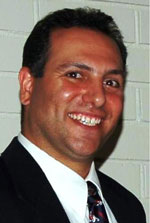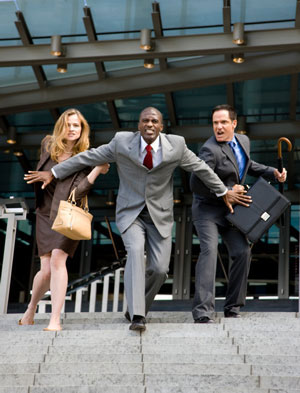![The Duluth memorial photo above is described by its artist as an attempt to "reinvest [the victims] with their unique personalities," to counteract the way the lynchings "depersonalized" them. Duluth Lynching Memorial](../../sites/default/files/styles/width300/public/Duluth_Lynchings_Memorial_034c5.jpg?itok=epdp6Vcj)
Preparing For An Honest Dialogue On The Sociology Of Race
Compiled by, Matthew A. Jendian, Ph.D.
Associate Professor & Chair of Sociology
California State University, Fresno
(The following essay is compiled from excerpts of Allan G. Johnson’s Privilege, Power, & Difference, McGraw Hill, 2000, and Paula S. Rothenberg’s White Privilege, Worth Publishers, 2005, which I have adapted, personalized, and made directly applicable to my paper.)
Publisher’s Note: We begin this historic dialogue on race relations with an essay written by Matthew A. Jendian, Ph.D., that we believe is very valuable in outlining the barriers that have entrapped us and prevented us from engaging in a sustained conversation about the complexities of race relations in America and across the globe. Moreover, we believe that the framework Dr. Jendian presents will enable us, if we are truly willing, to have an honest and open discussion that will yield meaningful and lasting results. Dr. Jendian’s essay will be presented in four parts and will guide our conversation over the next four weeks.
Janice S. Ellis, Ph.D., M.A.
Founder, Publisher & Executive Editor
USARiseUp.com

Difference Isn’t The Problem - The Legacy Of Privilege Is
The trouble around difference is really about privilege and power — the existence of privilege and the unequal distribution of power that maintains it. The trouble is rooted in a legacy we all inherited. It isn’t our fault; it wasn’t caused by something we did or didn’t do, but now that it’s ours, it’s up to us to decide how we’re going to deal with it.
Talking about power and privilege isn’t easy, which is why people rarely do. The reason for this avoidance seems to be a great fear of anything that might make people in the dominant groups uncomfortable or “pit groups against each other.” This fear keeps people from looking at what’s going on and makes it impossible to do anything about the reality that is deeper down, so that we can move towards the kind of world that would be better for everyone.
Ignoring privilege keeps us in a state of unreality, by promoting the illusion that difference by itself is the problem. Denying that privilege exists is a serious barrier to change.
The trouble around diversity, then, isn’t just that people differ from one another. The trouble is produced by a world organized in ways that encourage people to use difference to include or exclude, reward or punish, credit or discredit, elevate or oppress, value or devalue, leave alone or harass, and ultimately reproduce a hierarchy of what is valued.
 Individuals are the ones who experience privilege or the lack of it, but individuals aren’t what are actually privileged. Privilege, rather, is defined in relation to a group or social category. I’m not race privileged because of who I am as a person but rather because of what social categories others put me in.
Individuals are the ones who experience privilege or the lack of it, but individuals aren’t what are actually privileged. Privilege, rather, is defined in relation to a group or social category. I’m not race privileged because of who I am as a person but rather because of what social categories others put me in.
We don’t have to be special or even feel special in order to have access to privilege, because privilege doesn’t derive from who we are or what we’ve done. It is a social arrangement that depends on which category we happen to be sorted into by other people and how they treat us as a result.
To have privilege is to participate in a system that confers advantage and dominance at the expense of other people. This can cause distress to those who benefit from it; that’s where the guilt may come from and some may go to great lengths to avoid feeling and looking at it.
The prevalence of racism, sexism, and heterosexism is among our worst kept secrets. Much of the time, people manage to act as though nothing’s wrong. Privilege/oppression is the proverbial elephant in the room, and if the teacher or the boss won’t talk about it, the subordinate trying to learn the ropes and get ahead certainly won’t be likely to take the risk of making powerful people uncomfortable by bringing it up.
 Most organizations’ failure in the area of diversity occurs not because they’re run by mean spirited white male bigots — few are — but because they deal with diversity badly or not at all, unless a crisis forces the issue. Even then, they deal with it only enough to make it seem to go away, which usually doesn’t include confronting the reality of privilege and oppression.
Most organizations’ failure in the area of diversity occurs not because they’re run by mean spirited white male bigots — few are — but because they deal with diversity badly or not at all, unless a crisis forces the issue. Even then, they deal with it only enough to make it seem to go away, which usually doesn’t include confronting the reality of privilege and oppression.
The oppressive effect of privilege is often so insidious that the dominant groups complain whenever it’s brought up for discussion. They feel impatient and imposed upon. “Come on, stop whining. Things aren’t that bad. Maybe they used to be, but not anymore. It’s time to move on. Get over it.”
But people who are members of the dominant groups — white, male, heterosexual, middle, or upper class — have to ask themselves how they would know how bad it really is to be a person of color or female, gay/lesbian, working, or lower class. What life experience would qualify a white person to know the day-to-day reality of racism? People of color, by comparison, are experts in the dynamics of race privilege, because they live with the oppressive consequences of it 24 hours a day.
Most members of the dominant group do not see privilege as a problem (for a variety of reasons). Confronting racism and sexism is hard, sometimes painful, and even frightening work.
If people can own the problem, and see that the trouble is truly their trouble and not someone else’s, people are more likely to do the serious work on issues of privilege.
The discomfort, defensiveness, and fear come in part from not knowing how to talk about privilege without feeling vulnerable to anger and blame. There is no way to do this work without the possibility that people will feel uncomfortable, or frightened or threatened. But the risk isn’t nearly as big as it seems.
What do you think?

Comments
Social Categories
Social categories lead to a hierarchal system, because who ever is categorizing is looking to the interest of him or her self. It is definitely uncomfortable to assess my ‘whiteness’ as a white person. If feels like I have unjustifiably cut people in the lunch line. There is no “special” quality that enables me to stand in front of someone else. Unfortunately, in our society, money has talked, no, money has yelled louder than Equality. The power of economics, supply and demand, manipulates our social lenses. Our society is founded on colonization and this concept has forever imprinted social structure and function. We have learned to categorize people groups for the benefit of the dollar. Colonizers and capitalist alike learn how to drain profit from people; they learn how to dehumanize, they learn how to widen the gap between the rich and the poor. It seems there is an agenda within our culture that encourages hierarchal thinking as well as social Darwinism. This sort of thinking saddens me. We must challenge social categories and why they exist, whom are they benefiting, and why?
Race Dialogue is the key
Yes, the root for racism is economic advantages which related to the privileged attached to whiteness. As the writer said, most members of the dominant group do not see privilege as a problem. For them, by default that is who they are, that is how they live their day to day life. In the contrary, it is a different experience for people of color. As it is going on now, to make things better,open race dialogue is a perfect way to teach each other. It is not only dominant groups don’t see the problem also both dominant groups and people of color don’t know how to address the issue and to engage in an educational open conversations. It’s very uncomfortable issue; silence is not solving any thing too.
Difference leads to an amount
Difference leads to an amount of dichotomies between people that mark barriers between them. These barriers usually distinguish who has privilege and who doesn't. Recognizing that privilege exists, that it is usually inherited, and that it is based on social/ ethnic category not character, is the first step to realizing that privilege has a unequal balance over all members in society. I definitely agree that members of the dominant group don't realize the problems that those in lower classes face because members of the dominant group can't relate. It is hard for people to truly understand an experience if they haven't experienced it themselves. I also think that many members of the dominant group don't want to accept the fact that they are more privileged based on their social/ ethnic background, not who they are as a person. Recognizing the issues of privilege is hard to understand, but it is necessary if we want change to happen. If privilege was stowed upon those based on who they are as a person, not on their ethnicity or color, then their would be balance among the races in our society.
Privilege
Privileges are always in motion every single day from the time we wake up to the time we go to sleep. In the article I love how he brings up the point that people of color are the only ones who can tell you how it feels to be oppressed by privileges especially if you are one of the groups who don’t have any. Everyone is talking about ways to become one whole united society but how can we do that we the oppressors don’t feel the need to listen to the ones being oppressed because they don’t see it with their own two eyes or because they think things have changed because we have a president of a different race. Just because our president is black does not mean black people got new and improved privileges, we are stuck with the same nothing that we had before he was elected. I also love how he brought up the company part that when inequality issues are brought up and that companies will take care of that and when the issue is gone, they are done discussing the issues. Things like this are really helpful to know, or brought into the light. It shows a different area that we need to work on.
The privileged and the under
The privileged and the under privileged will never see eye to eye unless they have been in each others shoes at one point or another. Obviously whites have always been the main privileged group as a general rule. The gap between the privileged and under privileged is widening when it should be decreasing. The privileged don't see themselves as a problem because they feel they haven't caused this gap and they haven't caused anyone to be poor by getting themselves a good job. I think if we all individually work on this problem it can get better. This race dialogue is a great way to start changing things. We all need to stop pointing blame at races for things and start to take more action for changes in equality.
out of your zone
The writer brings up great points one main one that stuck in my mind that is very true is only the under privilege see that they are indeed being under privileged. And those whose are privileged have no idea that this is even happening to them and the benefits they have. People need to realize where they stand and see that it isn’t fair to others that you can get this opportunity and others do not. People need to get out of their discomfort zone and actually talk about the situation at hand and the things that are important. There has to be some sort of guide line people should try and in force so that there is equal amounts of opportunity amongst every type of person. Just step out and speak up about what you see people get or what you see you get as well and talk about it stop hesitating and make moves.